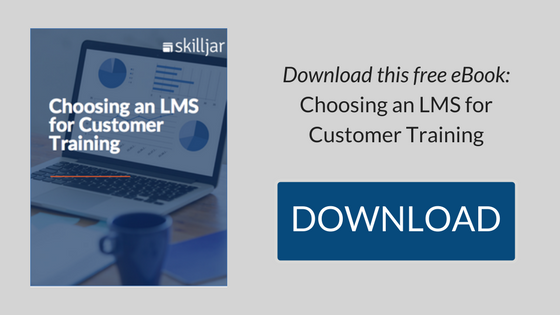If we were to position Skilljar as an "extended enterprise learning management system (LMS)," our customers would probably look at us with blank stares. Even mentioning the term "LMS" produces mental images of clunky, old-school HR compliance systems.
At Skilljar, we prefer to call our product a "customer training platform." But no matter what you call it, what makes Skilljar unique is our focus on customer and partner education - aka the "extended enterprise." This blog post describes the extended enterprise and what to look for in an LMS that serves this particular audience.

What is extended enterprise training?
Extended enterprise training refers to educating an organization’s external audiences, such as customers, channel partners, and suppliers. The extended enterprise is increasingly critical, with the rise of software-as-a-service, contract workers, and an interconnected world, Here are some common use cases:
- Customers: Providing training for initial product onboarding and ongoing customer success.
- Channel Partners: Certifying channel partners, resellers, distributors, and retailers with the information and skills needed to best sell your product.
- Contractors: Educating temporary workers, 1099 contractors, the on-demand workforce, and vendors on key expectations.
- Franchises: Providing resources to franchisees and their staff on best practices for setup and ongoing operations.
- Member associations: Offering continuing education and development opportunities for members of a professional association.
- Suppliers: Educating supply chain partners on software tools, contracts, quality, environmental standards, and expected working conditions.
- Volunteers: Training volunteers with a consistent and scalable message from the organization's headquarters.
What is an extended enterprise LMS?
An extended enterprise learning management system (LMS) is a software solution for delivering and tracking online learning. It is specifically optimized for customer and partner training, rather than employee learning.
Both types of systems share a common core of hosting and serving learning content. Even though Skilljar is optimized for customer training, we have many clients that do use it for internal employee learning, thanks to our ease of use and detailed reporting.
For more complex learning needs, there are additional features to look for, including:
- Customer training: CRM integrations, certifications, e-commerce, self-registration, mobile-friendly
- Employee training: Built-in compliance content library, performance and talent management
In next week's post, we'll explain the different learning style of the extended enterprise (compared to internal iemployees). Stay tuned for more.
Can't wait till next week? Download Choosing an LMS for Customer Training today!

